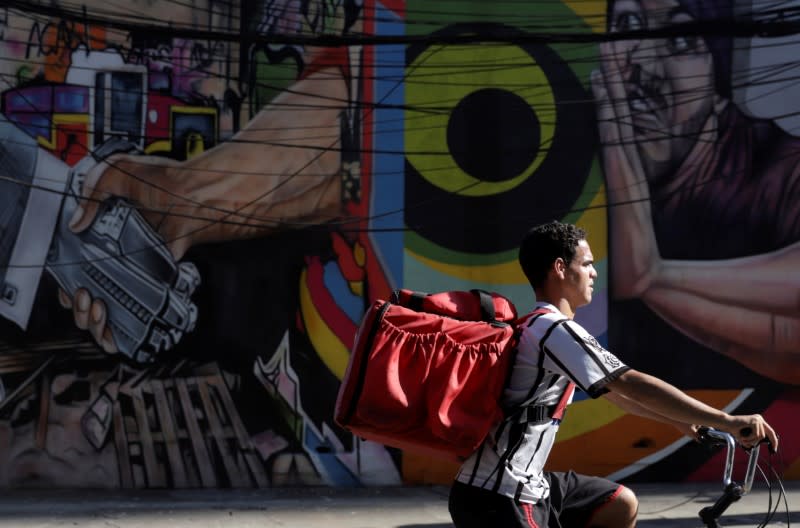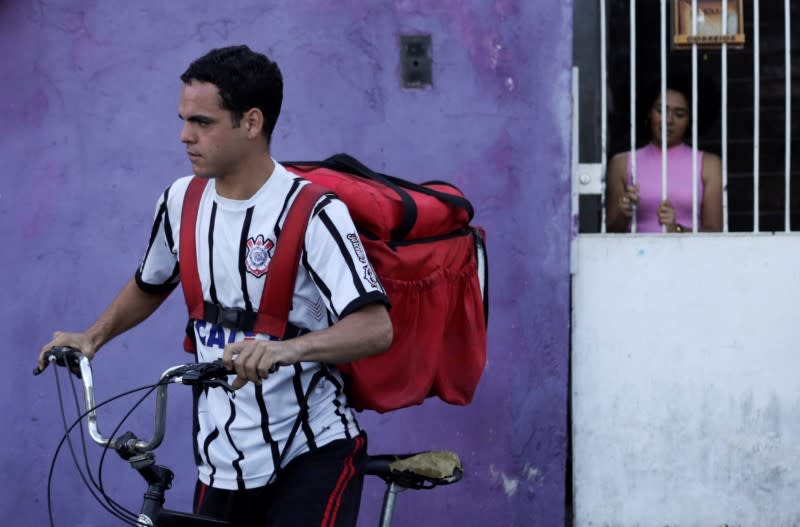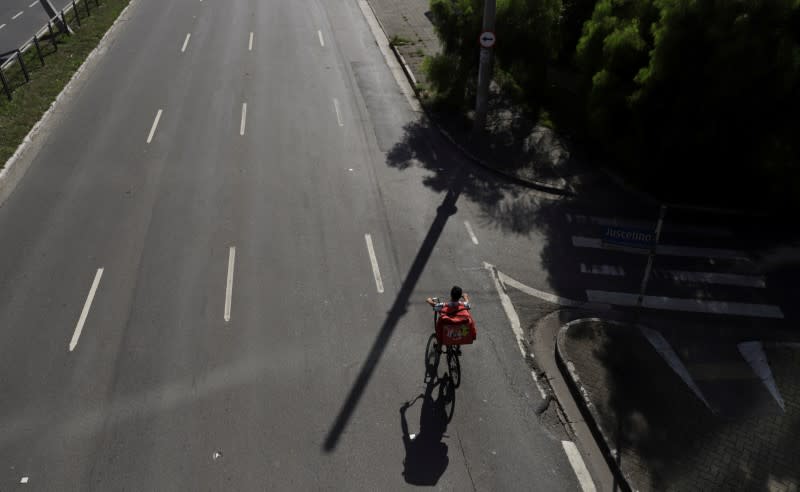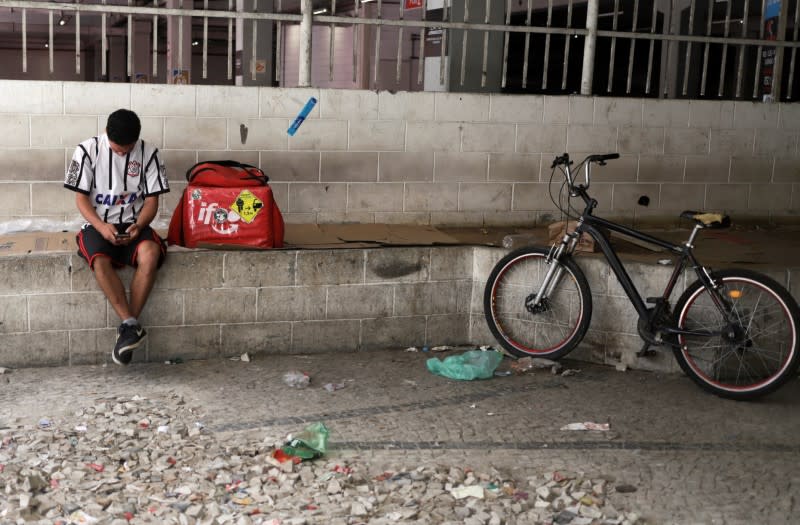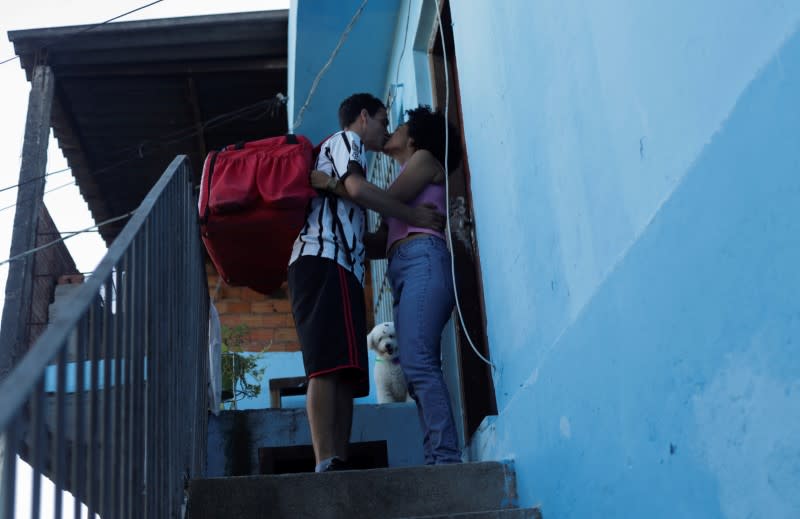Viagra, 70 cans of Coke: One man's deliveries in locked down Sao Paulo
By Stephen Eisenhammer
SAO PAULO (Reuters) - Few venture into the streets of Sao Paulo these days, but Erik Thiago says he will not stop working as a bike delivery man until he gets sick or the government forces him inside.
As others in this city of 12 million stay home to slow the coronavirus outbreak, the 22-year-old rides an hour from his favela in the southern outskirts to deliver groceries, medicine and whatever else residents of upscale neighbourhoods request.
Without a face mask and with just a small bottle of hand sanitizer to use between deliveries, he knows he is especially exposed. Still, he wants to keep working to put aside a little cash "in case it gets worse."
In Brazil, where 77 people have died out of nearly 3,000 confirmed coronavirus cases, the country's largest city has come to near standstill. It is people like Thiago, usually poor young men from the favelas or slums, who allow the rest to stay indoors.
Thiago delivers for the mobile app Rappi — one of 200,000 people in Latin America to do so. The company declined to break out numbers for Brazil.
More than just a delivery app for picking up meals from restaurants, Rappi also gives couriers shopping lists to collect items off the shelves and a customer-funded debit card for payments.
During the lockdown, Thiago's orders have shifted from fast food to goods for stockpiling. One customer asked for 70 cans of Coke.
On Thursday, Thiago delivered bleach, a pack of sausages and anti-bacterial pet shampoo, among other things. Sometimes orders are more sensitive: he bought the erectile drug Viagra for one particularly grateful customer.
Thiago's work is deemed "essential" by the state government, but that has not helped his bottom line much. On a good day, he takes home 100 reais ($20). But demand varies dramatically. Over the five hours Reuters shadowed him on Thursday, he earned 31 reais — and most of that was tips.
"Before the epidemic no one tipped," said Thiago, wearing a black T-shirt and striped shorts. Between his eyebrows is a rough scar from when a car hit him last year.
He hopes the virus will bring some recognition for his line of work. "Right now they throw us in with the drug addicts," he said.
"Sometimes when I'm out on the street, people thank me for the service I'm doing," Thiago added, pedalling the trusty black bike his mother gave him as a present two years ago.
But at other times the injustice prickles.
On one order, Thiago picked up three tomatoes, a yellow pepper, two potatoes, some bacon and a pack of sausages from a supermarket. When he checked the delivery address it was four doors down — 30 meters (yards) away.
A software engineer in his 20s accepted the delivery, saying he is staying indoors to stay safe.
"I'm not angry, but it's a privilege that he has," said Thiago. "I would like to stay at home and quarantine but..."
(Reporting by Stephen Eisenhammer; Editing by Brad Haynes and Dan Grebler)

 Yahoo News
Yahoo News 